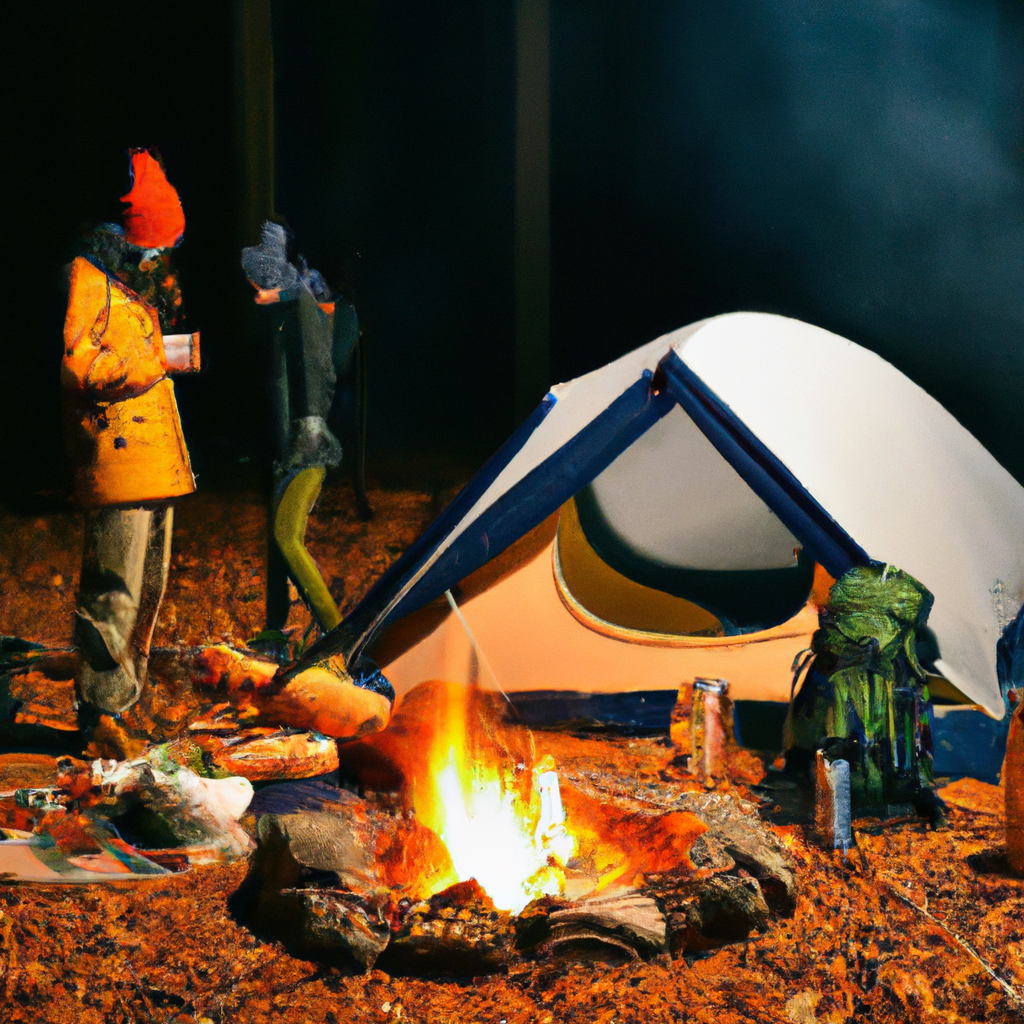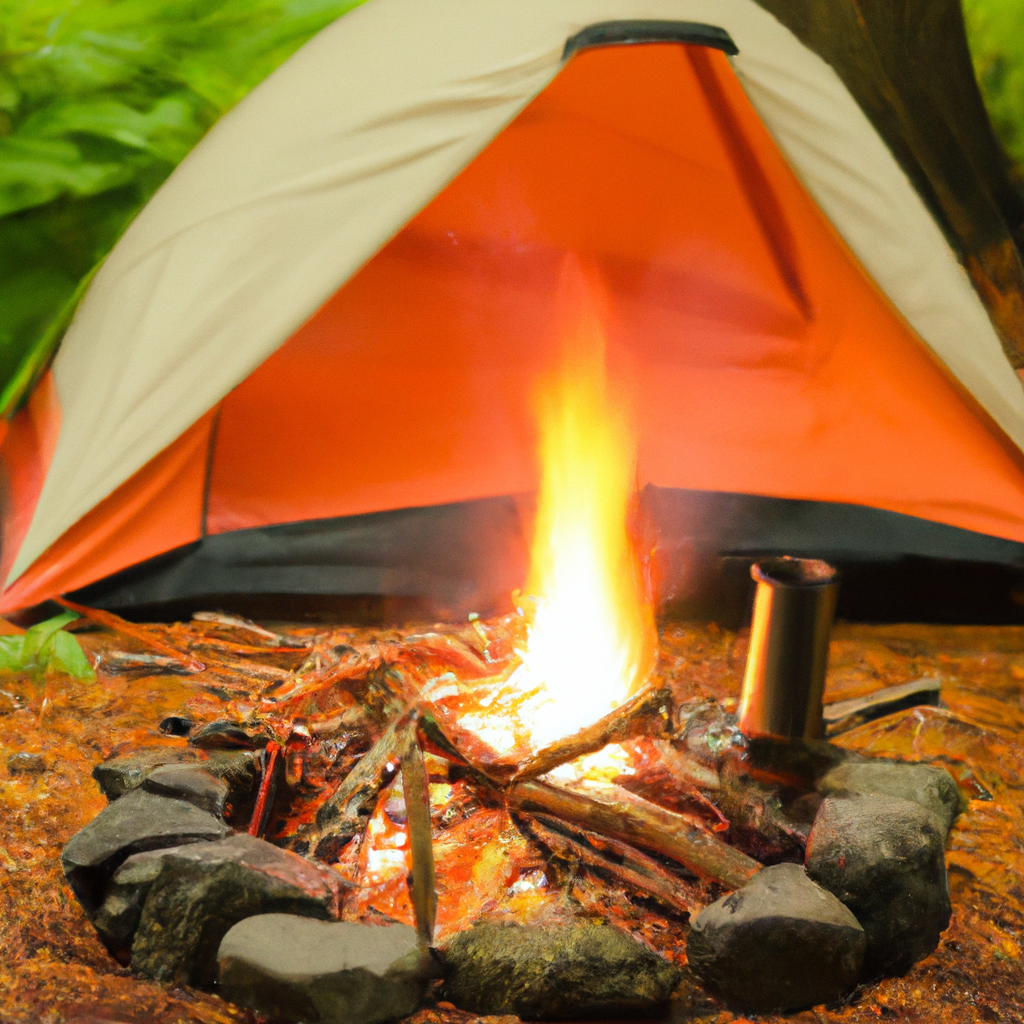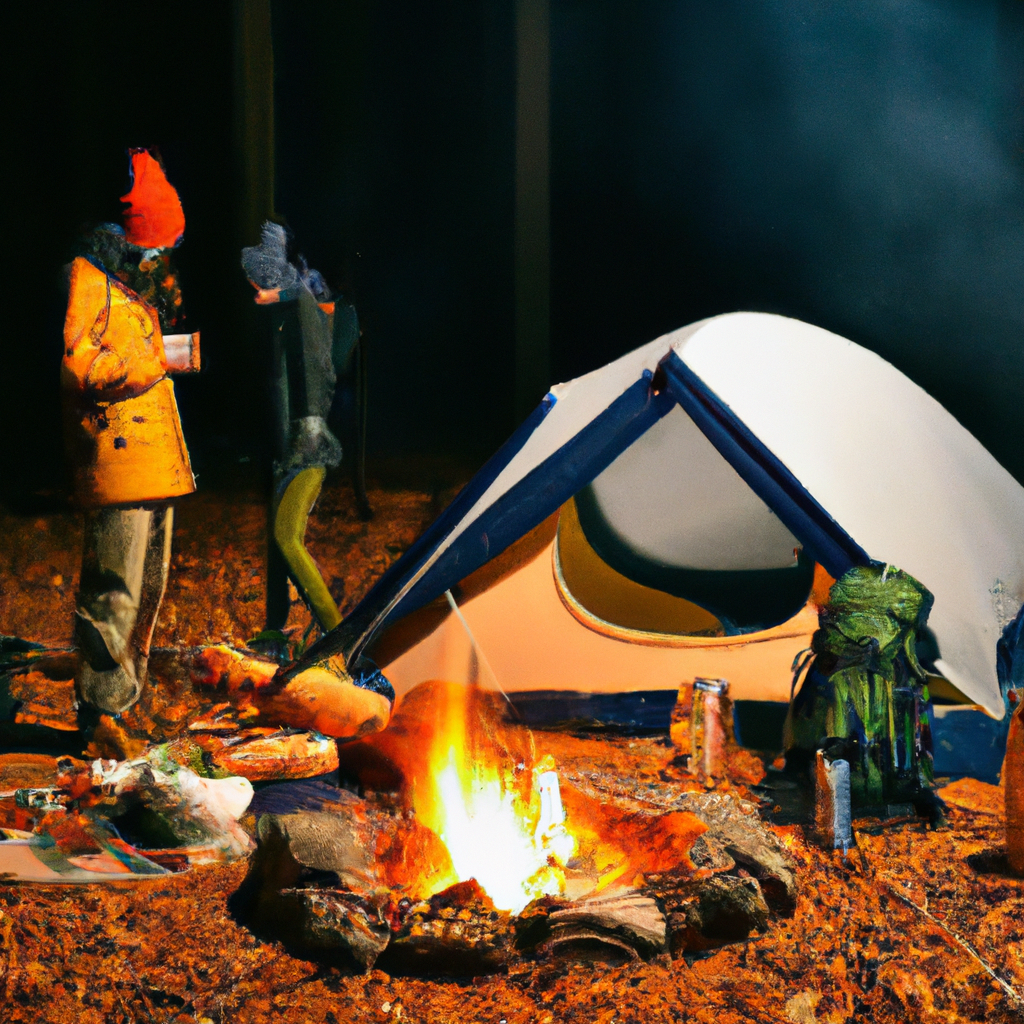Are you itching for an adventurous getaway but worried about the expense? Look no further! This article has got you covered on all the tips and tricks you need to plan an unforgettable camping trip without breaking the bank. Whether you’re a seasoned camper or a first-timer, we’ve got budget-friendly ideas for accommodations, activities, and even meals that will help you make the most of your wilderness escape. So put away your worries, grab a pen and paper, and get ready to embark on an amazing outdoor adventure without draining your wallet.

Choosing the Destination
When planning a camping trip on a budget, the first step is to choose the destination. Consider local options that are within driving distance of your home. Not only will this save money on transportation, but it will also give you the opportunity to explore your own backyard. Look for free or low-cost campgrounds in the area. Many towns and cities have public parks or recreation areas that offer camping at a minimal fee. Another option is to consider national or state parks, which often have affordable camping fees and offer beautiful natural settings.
Planning the Itinerary
Once you have chosen the destination, it’s time to plan your itinerary. Determine the length of the trip based on your availability and budget. A shorter trip can still be enjoyable and cost-effective. Decide on the activities you want to engage in during your camping trip. Whether it’s hiking, fishing, boating, or simply enjoying nature, make a list of the things you want to do. Afterward, create a daily schedule to maximize your time and ensure you don’t miss out on anything.
Budgeting for Expenses
Budgeting is a crucial aspect of planning a camping trip on a budget. Start by estimating transportation costs. If your chosen campground is within driving distance, calculate the cost of gas and any tolls you may encounter. If flying is necessary, compare prices and book your tickets in advance to secure the best deals. Next, calculate the camping fees for the duration of your trip. Some campgrounds charge a nightly fee, while others may offer weekly or monthly rates. Finally, plan your meals and groceries. Consider preparing simple and cost-effective meals and bring non-perishable items to avoid frequent trips to the grocery store.
Transportation Options
When planning a camping trip on a budget, evaluating transportation options is essential. Compare the costs and benefits of driving versus flying. While driving may seem more cost-effective initially, factor in the price of gas, tolls, and parking fees. If possible, consider carpooling with friends or family to split the expenses. Additionally, explore public transportation options if your chosen destination is accessible by bus or train. Public transportation is often a cheaper alternative to flying or driving, especially for shorter distances.

Camping Gear and Equipment
Before heading out on your camping trip, consider your options for camping gear and equipment. Check for discounted gear at outdoor stores or online retailers. End-of-season sales or clearance events can offer significant savings. Alternatively, consider buying used gear from individuals or websites specializing in second-hand outdoor equipment. Another budget-friendly option is to borrow equipment from friends or family who have camping gear they are willing to lend. Lastly, opt for basic essentials when it comes to camping gear. You don’t need all the latest gadgets and fancy equipment to have a great camping experience.
Meal Planning
Meal planning is an important aspect of camping on a budget. Plan simple and cost-effective meals that are easy to prepare at the campsite. Consider meals that require minimal cooking equipment and ingredients. Sandwiches, wraps, and pasta dishes are all versatile options that can be made with a few basic ingredients. Bring non-perishable items such as canned goods, granola bars, and dried fruits to supplement your meals. Additionally, utilize local markets or farmers’ markets to purchase fresh produce during your camping trip. Supporting local businesses not only helps the community but can also be more affordable than shopping at larger grocery stores.
Packing Essentials
To ensure a successful camping trip, it’s important to pack all the essentials. Create a checklist of everything you will need, including camping gear, cooking utensils, clothing, toiletries, and personal items. Don’t forget to pack versatile clothing that can be layered to accommodate different weather conditions. Pack items that can easily be mixed and matched to create different outfits. Most importantly, don’t forget essential camping gear such as a tent, sleeping bag, and cooking supplies. Having these items ready will make your camping experience more comfortable and enjoyable.
Entertainment and Activities
Part of the joy of camping is engaging in various activities and exploring the outdoors. Research free or inexpensive attractions in the area you will be camping. Many parks offer guided hikes, wildlife viewing areas, or interpretive programs that are included in the camping fee. Take advantage of these opportunities to learn more about the natural and cultural history of the area. Engage in outdoor activities such as hiking, fishing, or swimming, which often require little to no additional cost. Plan for campfire activities in the evenings, such as storytelling, stargazing, or roasting marshmallows. These simple activities can create lasting memories and provide entertainment without breaking the bank.
Safety Precautions
Safety should always be a priority when camping. Prepare a first aid kit with essential medical supplies such as bandages, antiseptic ointment, and over-the-counter pain relievers. Follow safety guidelines and regulations provided by the campground or park you are visiting, including rules about campfire usage and wildlife interactions. Be aware of local wildlife and take precautions to store food properly and avoid any potential conflicts. By being prepared and practicing safety, you can have a worry-free camping experience.
Tips for Saving Money
Saving money while planning a camping trip on a budget is all about being resourceful and strategic. Travel during off-peak seasons, as prices for accommodations and campgrounds tend to be lower during these times. Take advantage of discounts and deals by signing up for newsletters or loyalty programs, which often offer exclusive promotions. Consider camping during weekdays instead of weekends, as prices are often more affordable. Also, limit unnecessary expenses by being mindful of spending on non-essential items or activities. By being conscious of your spending, you can have an enjoyable camping trip without breaking the bank.

